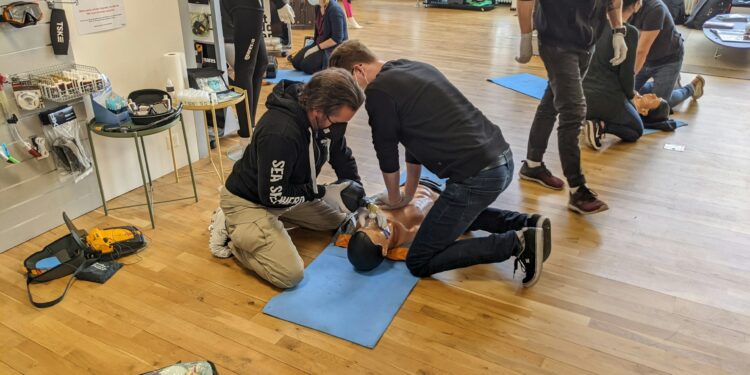It is life-saving.
A new study has found that the effectiveness of CPR in increasing a person’s chances of survival after cardiac arrest is not dependent on whether it is performed by a medical professional, such as a doctor or paramedic, or an untrained bystander. What matters most is the prompt initiation of CPR. The speed at which CPR is started has a direct impact on survival rates and recovery outcomes, according to researchers who presented their findings at a European Society of Cardiology meeting in Florence, Italy.
The study revealed that patients who received CPR from a bystander had the same survival rates during their hospital stay as those who were treated by trained medical personnel. The lead researcher, Aneta Aleksova from the University of Trieste, emphasized the critical need for immediate resuscitation and called for increased public awareness and training in Basic Life Support to improve survival rates after out-of-hospital cardiac arrests.
Researchers analyzed data from more than 3,300 heart attack patients admitted to University Hospital Trieste between 2003 and 2024. Over the years, the percentage of patients who received bystander CPR before professional help arrived increased significantly, from 26% in 2003-2007 to 69% by 2020-2024. This improvement in response time by the public was associated with better outcomes.
The study also found that each five-minute delay in the return of a spontaneous heartbeat increased the risk of death by 38%. Although 26% of patients died during their hospital stay, there was no difference in survival rates between those who received CPR from a bystander and those treated by paramedics.
Over a follow-up period of seven years, 14% of patients died, and long-term survival rates were similarly unaffected by who initially performed CPR. Researchers concluded that the quick return of a spontaneous heartbeat was the key factor in survival, regardless of whether CPR was initiated by a layperson or emergency medical personnel.

































Discussion about this post